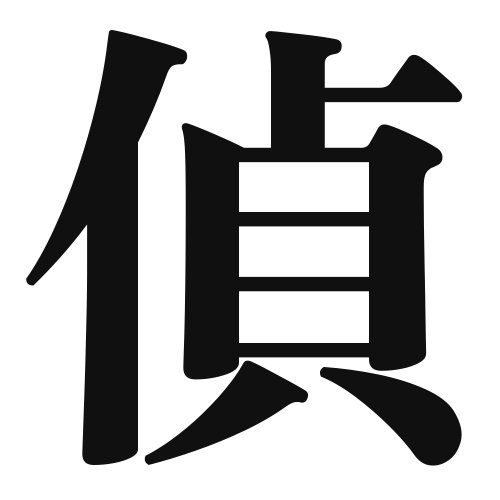1. Overview of Meaning
The kanji “偵” (tei) means “to spy” or “to investigate.” It is often associated with activities related to surveillance, reconnaissance, and gathering information discreetly.
2. Formation and Radical
Formation of the Kanji: The kanji “偵” is a phonetic compound (形声文字) that combines the radical for “person” (亻) with the character “廷” (tei), which relates to court or government. This combination suggests a person involved in official or secretive activities.
Radical: The radical of “偵” is 亻, which indicates that it is related to a person or human actions.
3. Examples of Usage
Common Words and Phrases:
- 偵察 (ていさつ, teisatsu) – reconnaissance
- 偵探 (ていたん, teitan) – detective
Example Sentences in Daily Conversation:
- 彼は偵察のために山に登った。 (かれはていさつのためにやまにのぼった。) – He climbed the mountain for reconnaissance.
- 偵探が事件を解決した。 (ていたんがじけんをかいけつした。) – The detective solved the case.
4. Synonyms and Antonyms
Similar Kanji:
- 探 (たん, tan) – to search or explore. While both “偵” and “探” involve investigation, “探” is more general and can refer to searching for anything, not just in a secretive context.
Antonyms:
- 公開 (こうかい, koukai) – public disclosure. This term represents the opposite of secretive actions associated with “偵.”
5. Cultural and Historical Background
Relation to Japanese Culture: The concept of spying and investigation has deep roots in Japanese history, particularly in the context of samurai and espionage during feudal times. The role of spies was crucial in warfare and political maneuvering.
Proverbs and Idioms: One relevant saying is “隠れているものは必ず見つかる” (かくれているものはかならずみつかる), which means “What is hidden will surely be found,” reflecting the idea that secrets and hidden actions will eventually come to light.
